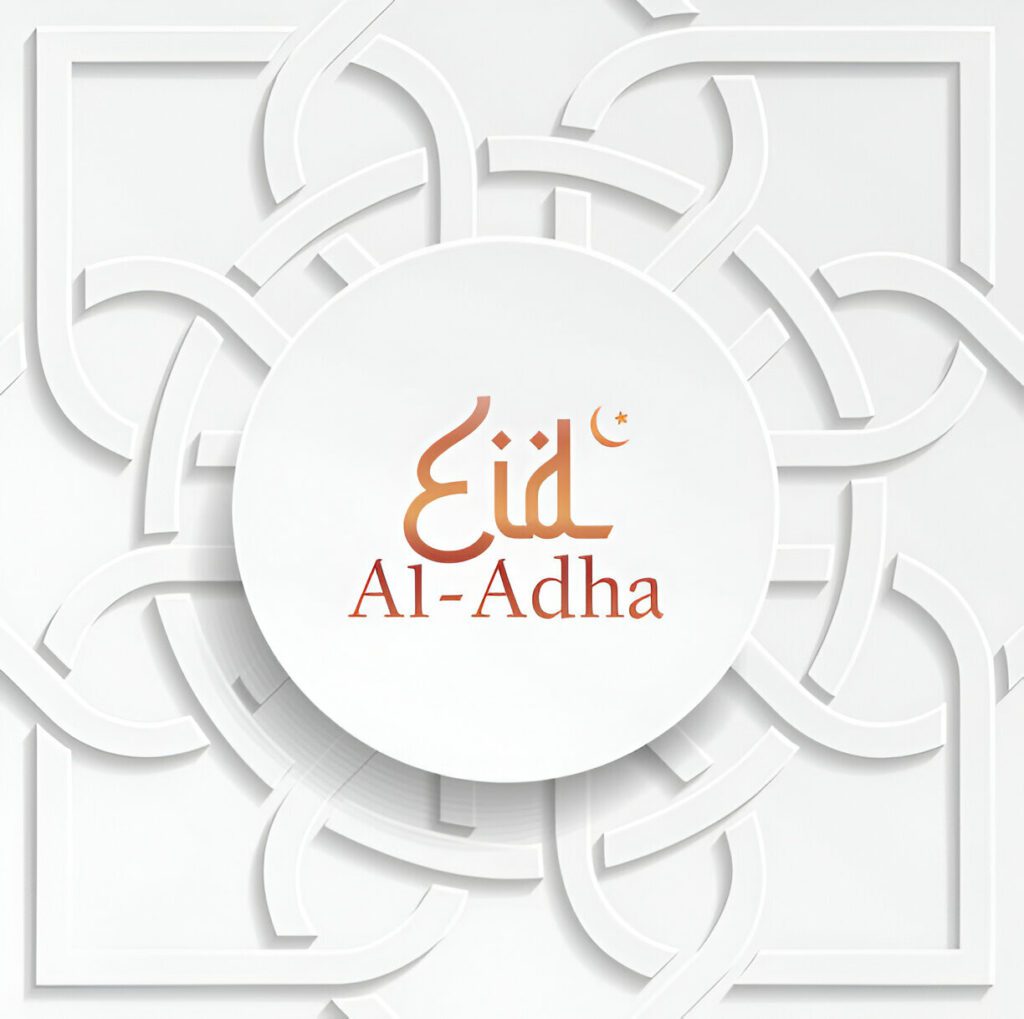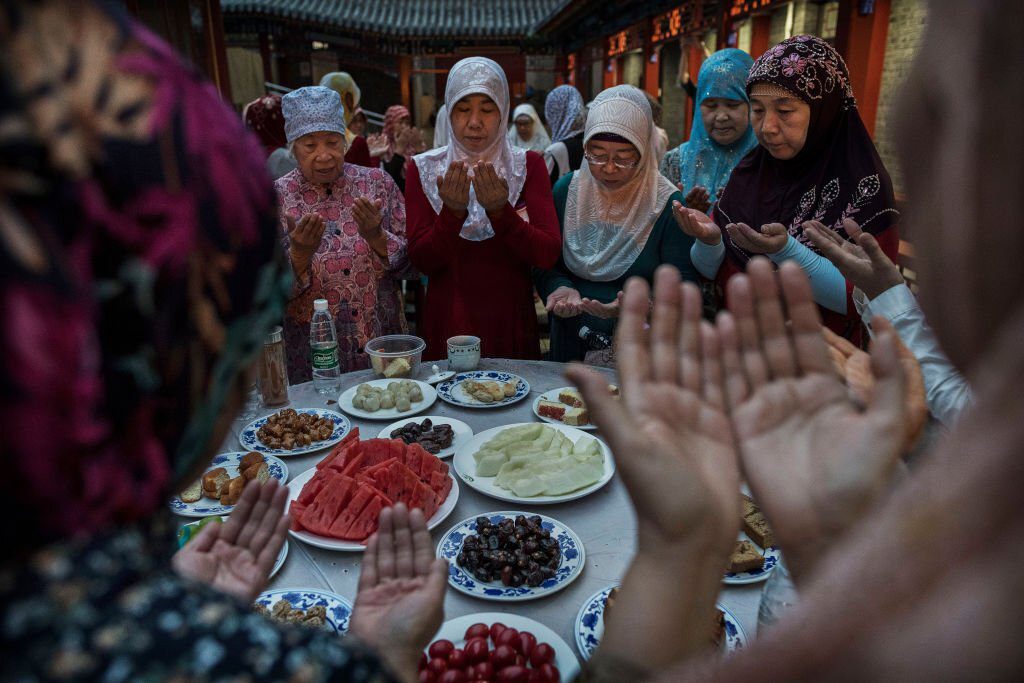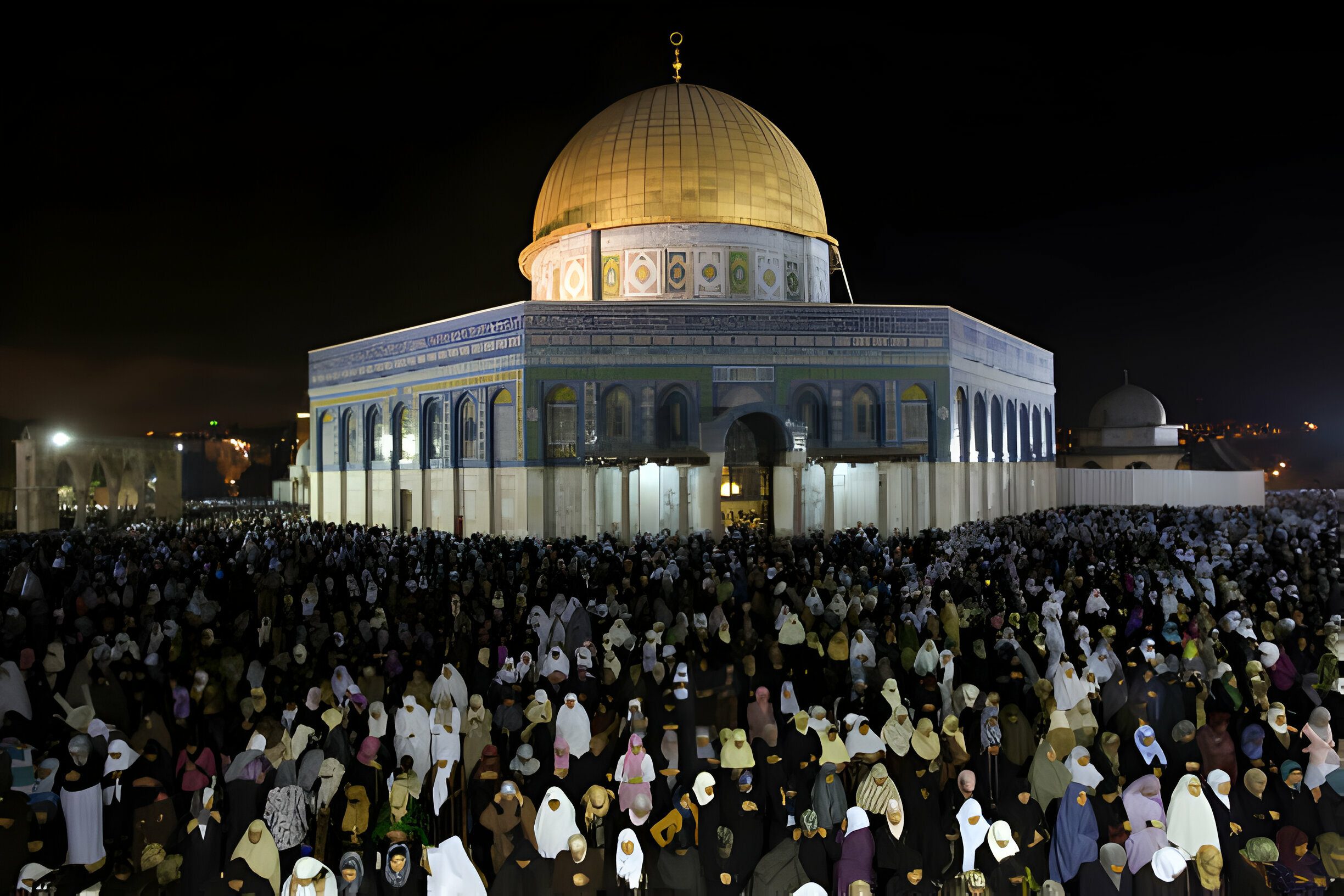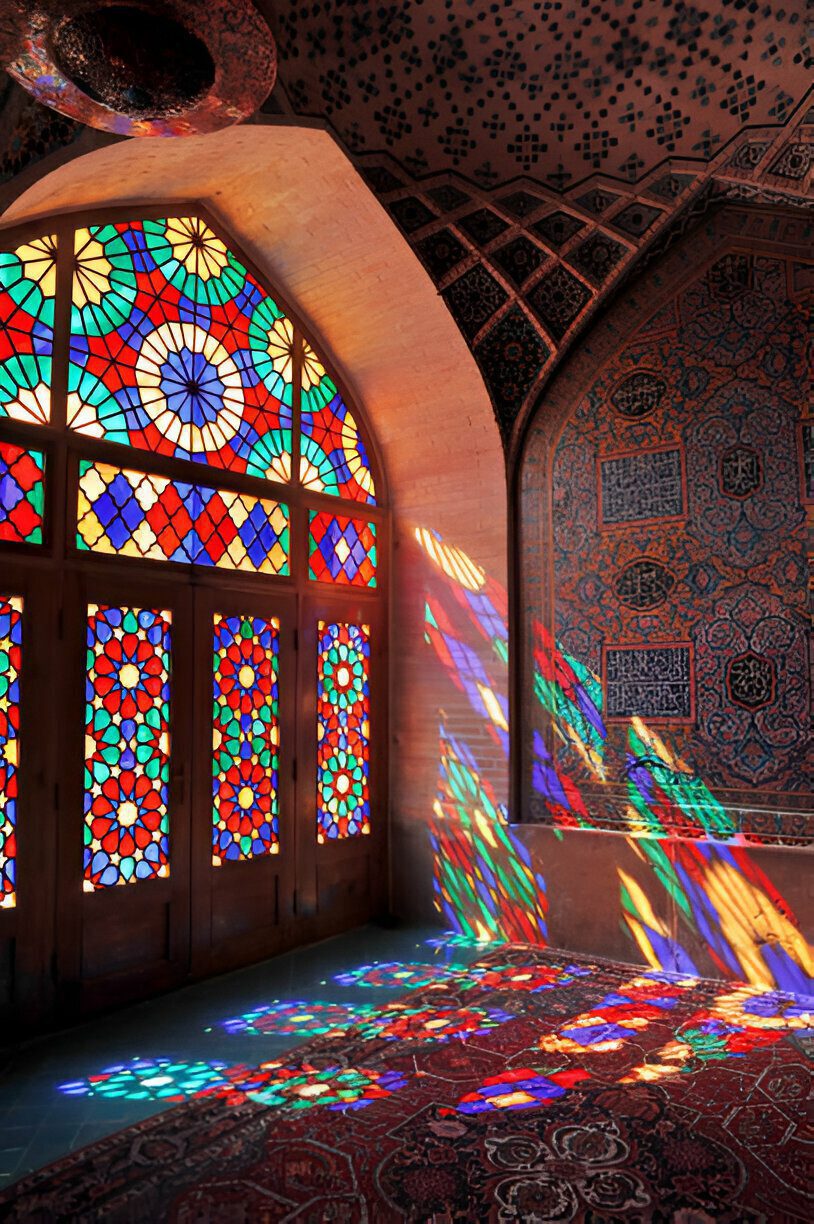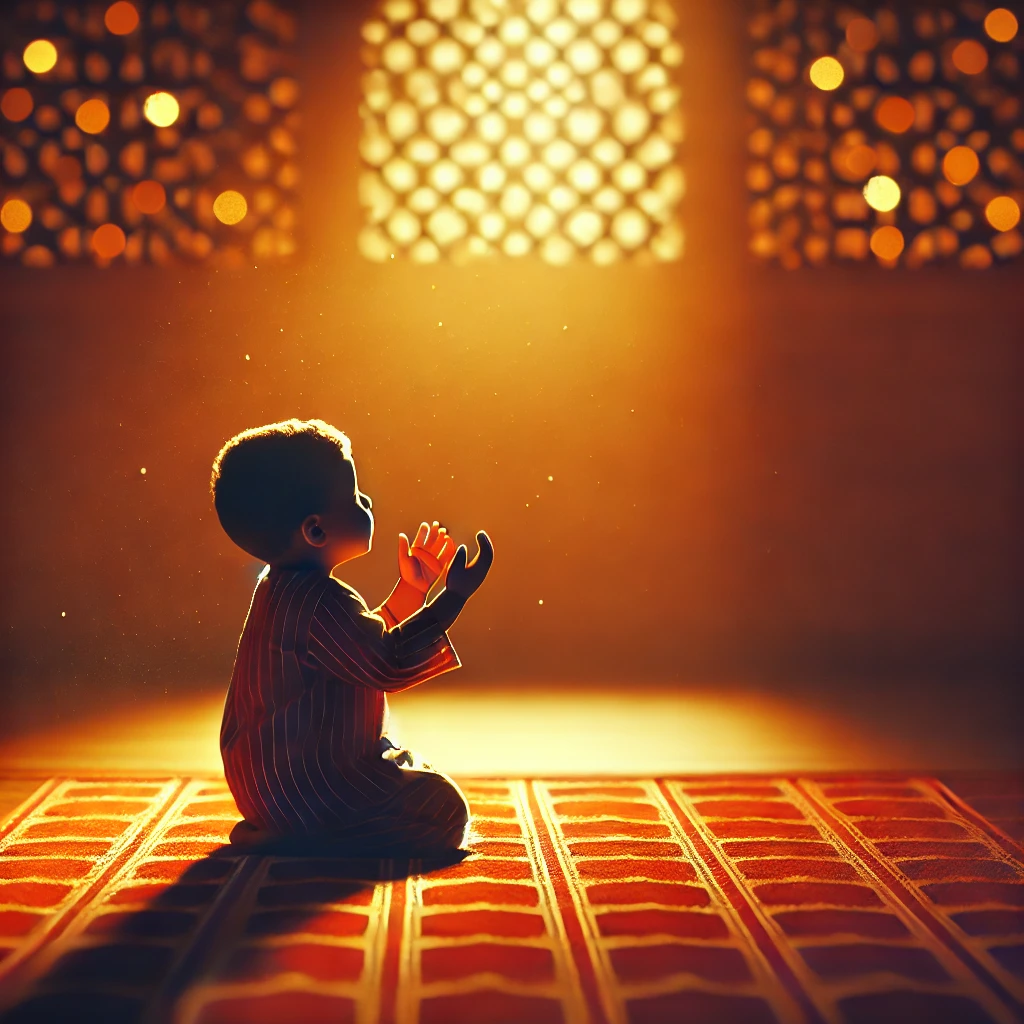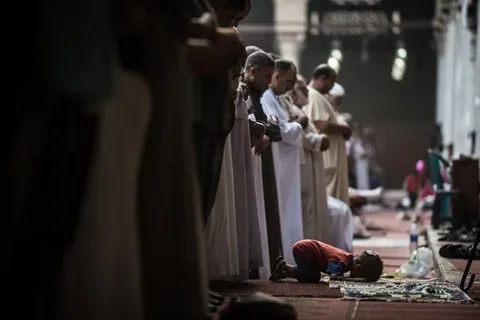One of the most profound ways to “glorify Allah for that which has guided you” is by reciting the takbir, which means proclaiming “Allahu akbar” or “Allah is the greatest.”
On Eid day, there is a special Takir known as Takbir al-Tashreeq. The majority of scholars agree that reciting this Takbir is part of the Sunnah of Prophet Muhammad (peace be upon him).
The Takbir in Arabic:
اللَّهُ أَكْبَرُ اللَّهُ أَكْبَرُ لَا إلَهَ إلَّا اللَّهُ. وَاَللَّهُ أَكْبَرُ اللَّهُ أَكْبَرُ وَلِلَّهِ الْحَمْدُ.
Transliteration: Allahu akbar, Allahu akbar, La ilaha illallah, Wallahu akbar, Allahu akbar wa lillahil hamd.
Meaning of the Eid Takbir
The translation of the Eid takbeer is:
“Allah is the greatest, Allah is the greatest, there is no god but Allah. And Allah is the greatest, Allah is the greatest and to Allah belongs all praise.”
When is the Eid Takbir Recited?
The Takbir for Eid al Adha is recited after every obligatory (Fardh) prayer, starting from the Fajr prayer on the 9th of Dhul Hijjah (the Day of Arafah) until after the Asr prayer on the 13th of Dhul Hijjah (the day after the final day of Eid).
This Takbir is considered Sunnah according to the majority of scholars. It is recommended for both men and women to recite it—in the mosque, at home, and in the marketplace. Men should recite it loudly, while women should do so quietly, as they are instructed to lower their voices. The Prophet (peace be upon him) said:
“If you notice something during the prayer, men should say ‘Subhan-Allaah!’ and women should clap.”
Therefore, women should recite the Takbir quietly, while men should say it out loud.
Tradition of Reciting Takbir on the Way to the Masjid for Eid Prayer
It was narrated from Urwah ibn al-Zubayr and Abu Salamah ibn ‘Abd al-Rahmaan that they used to recite the Takbeer loudly when they arrived at the prayer place in the morning. Similarly, Naafi’ ibn Jubayr would recite the Takbirout loud when he came to the prayer-place on the morning of Eid.
It was also narrated from Ibn ‘Umar that he would come to the prayer place on the morning of Eid al-Fitr after the sun had risen, and he would continue to recite Takbir until he reached the prayer place. There, he would continue reciting until the imam sat down and stopped reciting the Takbir.
This tradition of reciting Takbir during Eid celebrations highlights the importance of remembering and glorifying Allah, reinforcing the communal and spiritual aspects of the festival.
The Takbir for Eid in Arabic, Translation and Transliteration
| Allah is the Greatest, Allah is the Greatest, Allah is the Greatest | Allaahu Akbar, Allaahu Akbar, Allaahu Akbar |
اللّهُ أكبر اللّهُ أكبر اللّهُ أكبر |
| There is no deity worthy of worship except Allah | Laa ilaaha illallaah |
لا إلَهَ الا اللّه |
| Allah is the Greatest, Allah is the Greatest | Allaahu Akbar, Allaahu Akbar |
اللّهُ أكبر اللّهُ اكبر |
| And all praise belongs to Allah | Wa Lillaahil Hamd |
و لِلّه الحمدَ |
| Allah is greater than everything | Allaahu Akbar Kabeera |
اللّهُ أكبرُ كَبيِرَا |
| And praise be to Allah in abundance | Wal Hamdu Lillaahi Katheera |
وَالحَمدُ لِلّهِ كَثِيرا |
| And glory be to Allah in the morning and the evening | Wa Subhaanallaahi Bukratan Wa Aseela |
وَ سُبحَان اللّهِ بُكرَةً وَأصْيِلا |
| There is no deity worthy of worship except Allah alone | Laa ilaaha illallaahu Wahdah |
لا إلَهَ الا اللّه وحده |
| He fulfilled His promise | Sadaqa Wa’dah |
صَدَقَ وَعدَه |
| And helped His servant | Wa Nasara ‘Abdah |
وَنَصَرَ عبده |
| And strengthened His forces | Wa A’azza Jundah |
وأعزَ جُنَده |
| And alone defeated the combined forces | Wa Hazamal Ahzaaba Wahdah |
وَهزم الأحْزَابَ وحْدَه |
| There is no deity worthy of worship except Allah | Laa ilaaha illallaah |
لا إلَهَ الا اللّه |
| And we don’t worship except Him | Walaa Na’budu illa Iyyaah |
وَلا نَعبُد الا أياه |
| Offering Him sincere devotion even though the disbelievers hate it | Mukhliseena lahuddeena Walau Karihal Kaafiruun |
مُخلِصِّينَ لَهُ الدّيِنَ وَلوْ كَرِهَ الكَافِروُن |
| O Allah, send Your blessings on our leader Muhammad ﷺ | Allaahumma Salli ‘Alaa Sayyidinaa Muhammad |
اللّهمَ صَلِّ على سيْدنَا مُحَمد |
| And the family of our leader Muhammad ﷺ | Wa ‘Alaa Aali Sayyidinaa Muhammad |
وَعَلى آلِ سيْدنَا مُحَمد |
| And the companions of our leader Muhammad ﷺ | Wa ‘Alaa AsHaabi Sayyidinaa Muhammad |
وَعَلى اصْحَابِ سيْدنَا مُحَمد |
| And the supporters of our leader Muhammad ﷺ | Wa ‘Alaa Ansaari Sayyidinaa Muhammad |
و على أنصار سيدنا محمد |
| And the wives of our leader Muhammad ﷺ | Wa ‘Alaa Azwaaji Sayyidinaa Muhammad |
وَعَلى أزوَاجِ سيْدنَا مُحَمد |
| And the descendants of our leader Muhammad ﷺ | Wa ‘Alaa Dhuriyyati Sayyidinaa Muhammad |
وَعَلى ذُرِّيَةِ سيْدنَا مُحَمد |
| And send abundant peace upon them all | Wa Sallam Tasleeman Katheera |
وَ سَلّم تَسْلِيماَ كَثّيرا |
